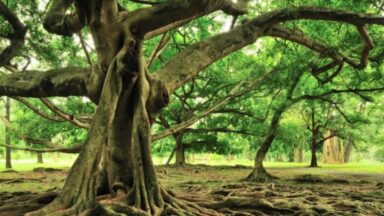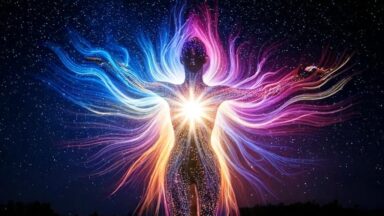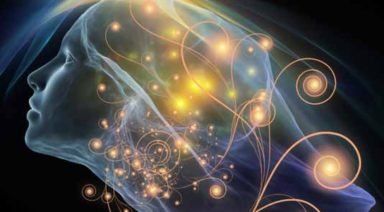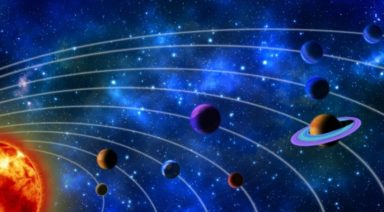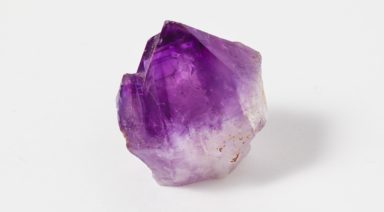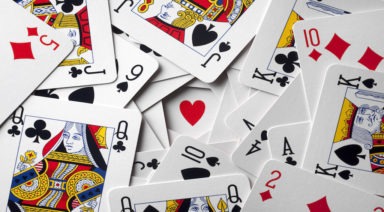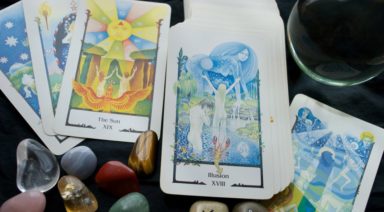The Five Chinese Zodiac Elements: How To Discover Yours And The Meaning Behind It

In Chinese culture, balance is a central concept. As energy flows in one direction, it naturally ebbs in another, creating a dynamic equilibrium. This idea is woven into practices like Feng Shui, traditional Chinese medicine, and holistic healing, where harmony in relationships—both internal and external—is essential. The Five Elements Theory, or Wu Xing, emerged during the pre-Qin period (770 BC – 221 BC) and forms the philosophical foundation for many aspects of Chinese thought and practice. The five elements—Wood, Fire, Earth, Metal, and Water—are considered the fundamental building blocks of the universe, constantly interacting in cycles of generation and control.
Similar to how Western astrology uses horoscopes, each element in Wu Xing has its own traits, associations, and symbolic meanings. No element is inherently superior; instead, each possesses distinct strengths and weaknesses and plays a vital role in maintaining universal balance. According to Five Elements Theory, all things originate from and eventually return to the universe through these elemental forces, which is why understanding our personal connection to them is so valuable.
Applications of the Five Elements Theory include:
- Traditional Chinese Medicine
- Feng Shui
- Fortune-Telling and Astrology
- Martial Arts
- Cosmology and Natural Philosophy
Understanding the Chinese Elements Cycle
Each of the five elements—Wood, Fire, Earth, Metal, and Water—stands independently, yet each influences and shapes the others. The world’s dynamic balance is guided by how the elements generate and control one another. The Generating cycle promotes growth and transformation, while the Controlling cycle maintains balance by regulating excess. Together, they create harmony when in proper alignment.
For example:
Generating Cycle (Shēng Cycle):
- Water feeds Wood.
- Wood fuels Fire.
- Fire makes Earth (i.e. ash).
- Earth produces Metal.
- Metal carries Water.
Controlling Cycle (Kè Cycle):
- Wood separates the Earth (i.e. roots).
- Earth absorbs Water.
- Water smothers Fire.
- Fire melts Metal.
- Metal penetrates Wood.
Unlock this episode to learn how to Align Inner and Outer Feng Shui
Discover Your Chinese Element
In Chinese astrology, each zodiac sign is associated with one of the five elements — this association is your “lucky” element. Each element has a dominant year based on the Chinese zodiac animal. Below is a way to find your “lucky” element:
Your Chinese Animal Sign
- Rat: Intelligent, clever, charming and persuasive
2008, 1996, 1984, 1972, 1960, 1948, 1936
- Ox: Stubborn, patient, conservative
2009, 1997, 1985, 1973, 1961, 1949, 1937
- Tiger: Brave, passionate, commanding
2010, 1998, 1986, 1974, 1962, 1950, 1938
- Rabbit: Earnest, likable, empathetic
2011, 1999, 1987, 1975, 1963, 1951, 1939
- Dragon: Intrepid, cunning, spirited, strong
2012, 2000, 1988, 1976, 1964, 1952, 1940
- Snake: Shy, friendly, astute, inviting
2013, 2001, 1989, 1977, 1965, 1953, 1941
- Horse: Restless, wanderlust, self-reliant
2014, 2002, 1990, 1978, 1966, 1954, 1942
- Sheep/Goat: Coy, timid, peaceful
2015, 2003, 1991, 1979, 1967, 1955, 1943, 1931
- Monkey: Lively, boisterous, fun
2015, 2004, 1992, 1980, 1968, 1956, 1944, 1932
- Rooster: Perceptive, diligent, pragmatic
2017, 2005, 1993, 1981, 1969, 1957, 1945, 1933
- Dog: Loyal, kindhearted, forgiving
2018, 2006, 1994, 1982, 1970, 1958, 1946, 1934
- Pig: Sympathetic, appreciative, honest
2019, 2007, 1995, 1983, 1971, 1959, 1947, 1935
Your “Lucky” Element
- Wood: Tiger, Rabbit
- Fire: Snake, Horse
- Earth: Ox, Dragon, Goat, Dog
- Metal: Monkey, Rooster
- Water: Pig, Rat
However, when asking “What Chinese Zodiac Element Am I?” the answer is determined entirely by the last digit of your birth year.
If the last number in your birth year is:
- 0 or 1, you are a metal element.
- 2 or 3, you are a water element.
- 4 or 5, you are a wood element.
- 6 or 7, you are a fire element.
- 8 or 9, you are an earth element.
What Your Chinese Element Means
Wood
Wood is generous and expansive and cares deeply for others. As with bamboo, Wood is strong yet flexible and is a natural-born leader. Its roots dig deep into the Earth, constantly looking to expand and push forward. However, Wood also needs moisture to survive. The characteristics of Wood are often associated with sensuality and patience. However, to balance this, Wood can also be intrusive and aggressive.
Strengths:
- Patient and understanding
- Warm, sociable, and compassionate
- Flexible and adaptable
- Stable and practical
- Generous
Weaknesses:
- Doesn’t have a good grasp of boundaries or limits
- Can be too passive
- Yields easily under pressure
- Can rely too heavily on others
Fire
Fire is always directed upward, and its energy seems never-ending. It is persistent and strong, but it also spreads and wanders easily. Those with Fire as their element tend to be thrill-seekers who roam from one adventurous moment to the next. Fire is often associated with warmth, passion, and the need to create.
However, on the reverse side, it can also be related to aggression, impatience, and destruction. While Fire can provide heat and warmth, it can also burn. Fire cannot exist on its own. While it is bright and exciting, it needs the stability of Wood to continue thriving.
Strengths:
- Passionate and enthusiastic
- Creative
- Persuasive and charismatic
- Spontaneous and adventurous
- Always up for a challenge
- Warm and loving
Weaknesses:
- Attention seeking
- Impatient
- Manipulative
- Susceptible to mood swings
- Aggressive
- Impulsive and volatile
- Dislike being alone
Earth
Earth is stabilizing and mediating. It is a natural-born peacekeeper. Earth is patient, thoughtful, and calm. While the Earth is warm and nurturing, it can also become easily self-centered as it believes it is the center of everything. Earth is protective and represents the roots that hold everything together, but it can also become controlling. People of this element contain a vast amount of empathy and find themselves constantly worried about the happiness of others.
Strengths:
- Stable and rooted
- Serious, practical, and logical
- Compassionate, caring, and empathetic
- Responsible
- Loyal and honest
- Nurturing
- Organized and good at planning
- Strong and enduring
- Hardworking
Weaknesses:
- Overprotective
- Stubborn
- Conservative — have trouble taking risks
- Reserved
Metal
Metal is the diamond found in the rough — it is the breath of life. Metal respects itself and also respects others. It is strong and hard, but can adapt and change under pressure. Metal is often seen to be unyielding, rigid, and determined. People with this element tend to be minimalists — enjoying the simplicity of an organized, clean life. However, on the negative side, Metal can also be forceful and controlling. Metal is matter-of-fact and does not see a need for complex or unnecessary emotion in its life.
Strengths:
- Courageous
- Ambitious and competitive
- Independent
- Determined, disciplined, and focused
- High morals and high standards
Weaknesses:
- Lacks communication skills
- Stubborn and sometimes unreasonable
- Judging
- Susceptible to being cruel and merciless
- Cuts ties easily
- Jaded
Water
In Chinese Taoist philosophy, Water represents intelligence and wisdom. Water is flexible yet strong, flowing yet still, calm yet dangerous. For Water, the surface is only the beginning, with the real movement hidden in its depths. Those with the Water element are not reclusive, but enjoy their own company and time for inner reflection. They are often quiet and peaceful but have a great capacity to overwhelm others.
Strengths:
- Diplomatic
- Observant
- Empathetic and good mediators
- Persistent and determined
- Intuitive and flexible
- Gentle yet strong
Weaknesses
- Self-Indulgent
- Too passive
- Rely on others too much
- Indecisive
- Anxious
What are the Emotions Related to the Five Elements?
Fire
Joy, laughter, and passion are typically associated with the Fire element. The desire for excitement and new experiences is ever-persistent. The constant flickering and wavering of flames is symbolic of one’s constantly flowing energy. Sometimes, this sentiment can be a little too intense, leading to anxiety or unease, but it serves as a reminder to maintain equilibrium, never losing that energy and burning out.
Water
The Water element is associated with fear and is often tied to darkness and cold. This fear, however, provides one with an awareness of the potential dangers or obstacles that could knock us off course in the ebbs and flows of our life path. When the Water element is in harmony, one can find that their willpower and endurance become stronger.
Earth
The Earth element represents worry, concern, sympathy, and melancholy. Other emotions tied to Earth are pensiveness, overanalysis, and obsessiveness, which one needs to be aware of to prevent this element from leading them to be overly controlling. Balancing the Earth element can result in one having better analytical skills and stronger concentration.
Metal
Metal is associated with sadness or grief as it represents an inability to be perfect. Although these types of emotions aren’t exactly pleasant to experience, they’re a part of life and unavoidable. Serving as a reminder to remain stoic, strong, and resolute, Metal also can prevent us from relaxing and letting go. However, a balanced Metal element will allow one to better process grief and sadness so as not to be consumed by it.
Wood
Wood, as an element, is tied to anger, frustration, and disappointment. As wood expands, it can become gnarled and stunted if it is not allowed to grow. To enhance decisiveness, action, and motivation, one must achieve harmony with this element.
Which Chinese Zodiac Sign Elements are Compatible?
Understanding the compatibility between Chinese zodiac sign elements can be enlightening and highly rewarding. Knowing which are compatible lets one gather insight into their relationships and interactions with others as well as their own personality traits. Peaceful interactions are often had with those that share compatible elements, while it’s possible (though not always the case) to experience potential challenges in communication or compatibility for those with conflicting elements.
Rat
- Compatible with: Ox, Dragon, Monkey
- Moderate with: Rat, Tiger
- Incompatible with: Horse, Rooster
Ox
- Compatible with: Rat, Snake, Rooster
- Moderate with: Ox, Monkey
- Incompatible with: Tiger, Dragon, Horse, Sheep
Tiger
- Compatible with: Dragon, Horse, Pig
- Moderate with: Rat, Rabbit
- Incompatible with: Ox, Tiger, Snake, Monkey
Rabbit
- Compatible with: Sheep, Monkey, Dog, Pig
- Moderate with: Tiger, Rabbit, Dragon, Horse
- Incompatible with: Snake, Rooster
Dragon
- Compatible with: Rooster, Rat, Monkey
- Moderate with: Rabbit, Horse
- Incompatible with: Ox, Sheep, Dog
Snake
- Compatible with: Dragon, Rooster
- Moderate with: Dog
- Incompatible with: Tiger, Rabbit, Snak, Sheep, Pig
Horse
- Compatible with: Tiger, Sheep, Rabbit
- Moderate with: Rabbit, Dragon, Monkey, Dog
- Incompatible with: Rat, Ox, Rooster, Horse
Sheep
- Compatible with: Horse, Rabbit, Pig
- Moderate with: Rooster
- Incompatible with: Ox, Tiger, Dog
Monkey
- Compatible with: Ox, Rabbit
- Moderate with: Horse, Rooster
- Incompatible with: Tiger, Pig
Rooster
- Compatible with: Ox, Snake
- Moderate with: Sheep, Monkey, Pig
- Incompatible with: Rat, Rabbit, Horse, Rooster, Dog
Dog
- Compatible with: Rabbit
- Moderate with: Ox, Snake, Horse, Dog
- Incompatible with: Dragon, Sheep, Rooster
Pig
- Compatible with: Tiger, Rabbit, Sheep
- Moderate with: Rooster
- Incompatible with: Snake, Monkey
Harmonizing Key Aspects of Your Life
By knowing the various characteristics and traits of the five Chinese elements, one can know when to spot their manifestations and balance them. This is the essence of Feng Shui for both your inner self as well as the expression of your outer self and environment. By maintaining harmony between these elements, one will find peace, health, and prosperity. This harmonious balance of zodiac elements also allows one to navigate life’s complexities gracefully and fosters a strong sense of holistic well-being that can touch every aspect of one’s existence.
Health
Regarding health, the five elements are individually associated with particular organs and body parts. These element/organ pairings are subsequently associated with other parts of the body, as well as various tastes. Additionally, each element and its designated body part directly support and generate another creating one symbiotic whole.
Fire
- Heart
- Small Intestine
- Tongue
- Blood Vessel
- Taste: Bitter
Water
- Kidney
- Bladder
- Ear
- Bone
- Taste: Salty
Earth
- Spleen
- Stomach
- Mouth Muscle
- Taste: Sweet
Metal
- Lung
- Large Intestine
- Nose
- Skin & Hair
- Taste: Spicy
Wood
- Liver
- Gallbladder
- Eye
- Tendon
- Taste: Sour
Spirit
The five Chinese elements are balanced by five elements of spirit, which are considered to be the foundational features of our mind, soul, and personality. Much like the way these elements must be balanced in other aspects of life to which they are related, these elements and their spiritual counterparts should be relatively offset and proportionally equalized. Of course, everyone’s personality is unique, so some elements dominate others, though, like anything, an abundance of one at the expense of another leads to instability. However, when it comes to the five spirits, there is a subtle hierarchy.
Below are the spiritual characteristics associated with each element:
- Shen — the Shen is considered to be the ruler of the heart and, therefore, given slightly more weight compared to other spiritual elements. It is associated with the fire element.
- Hun — the Hun is associated with the soul and its intangible nature. It is tied to the nature of consciousness that exists beyond the physical body. It is associated with the wood element.
- Po — Unlike the Hun, Po is associated with the consciousness that is tied to the body; the consciousness that dies when our physical body dies. It is associated with the metal element.
- Yi — The Yi is tied to our analytical mind and our ability to rationalize and make decisions in daily life. It is associated with the Earth element
- Zhi — Zhi characterizes our willpower and determination. It is associated with the water element.
Uncover Your Chinese Zodiac Element and Find Balance In Your Life
If there’s one takeaway from the study of Wu Xing or the Chinese Five Elements, it’s that everything in life requires balance. By identifying the characteristics of one’s personality, behavior, and tendencies, one can see where one may have certain strengths, predilections, weaknesses, and vices. Acknowledging these and consciously ensuring that one doesn’t overpower or outweigh the others is the key to a happy, successful, and peaceful life. This philosophy’s limbs branch out to nearly every aspect of one’s life, including how one should seek personal relationships, maintain physical and mental health, and pursue success in business.
Who was Ram Dass? The Wonderful, Magical, “Be Here Now” Guru

“Turn on, Tune in, Drop out.” Timothy Leary, the superhero of psychedelic drugs, died in 1996, while one of his partners in consciousness-expansion, Dr. Richard Alpert, a.k.a. Ram Dass, has since grown, expanded, lived, and thrived. (He has since passed in December of 2019.)
This is not to say that Alpert didn’t have a few issues along the way. Instead, it’s to note that his mission appeared to be broader, deeper, and with a longer tail. It’s entirely possible Alpert lived as long as he did in loving abundance because his teachings are still relevant and inspiring, possibly more than ever.
Dying to oneself sometimes requires retreats, rituals, deep self-exploration, daily meditation, and disappearing for a while. It might also involve a name change.
Richard Alpert was no longer Richard Alpert … after an extensive exploration of psilocybin, LSD, and other psychedelic chemicals, Alpert began to see behind the Wizard’s curtain. He fell in love with India, found his eternal master in the form of a guru, consumed a wealth of his spiritual sustenance, and in a relatively short period, Dr. Alpert grew spiritually and became Ram Dass.





